If there is one word that has defined the shift in our corporate culture in the last few decades, it is “diversity.” Whether we are talking about trends in workforce hiring and recruiting efforts, on-the-job training programs, and outreach to customers, most major companies have put efforts into increasing the diversity of their employee base and management pool. Diversity is also of course a major priority at colleges and universities, and employers by and large support these efforts because those employers depend upon having a diverse pool of talent from whom to hire new employees.
Diversity-based scholarships have been around for decades, but simply getting the education is not enough to start a career. Graduates need the opportunity to show off their talent and education, and so diversity-based hiring programs came into the picture to increase diversity in organizations and even whole industries. While any race-based program carries with it some of amount of controversy and disgruntlement, most agree with the overall push for diversity.
The Rise of Internship/Diversity Programs
But in some more glamorous industries – fashion, film, television, art, and so on – the number of entry-level jobs is always dwarfed by the enormous number of talented people who want in. Such jobs are rarely advertised, and often are word-of-mouth affairs requiring a personal connection to even be considered. In those worlds, diversity programs are sometimes the only “open to the public” entryways into the industry, and so there can be a very wide range of interest among diverse and non-diverse talent alike in such programs. For example, the Disney | ABC Writing Program, which seeks to identify and develop “creative talent with multicultural voices and perspective” in television writing, attracts 1,500 applicants with detailed submissions for a total of 8 spots.
The Getty Foundation Faces Discrimination Claims
Into this fierce climate for entry into the rarefied world of the arts comes the news this past week that the Getty Foundation – a non-profit supporting “individuals and institutions committed to advancing…the visual arts in Los Angeles and throughout the world” – was sued by a young woman based on its diversity program. The plaintiff, Samantha Niemann, claims she was deterred from applying to its Multicultural Graduate Internship program based on the fact that it only accepted certain students from certain racial backgrounds. Niemann argues that the Getty Foundation harassed her and improperly discriminated against her in violation of California law, and that she is owed damages as a result.
While many online commentators, dubious of a non-diverse person filing suit for discrimination, have ridiculed and mocked Niemann for her lawsuit, that doesn’t answer the following question: does she have a point in arguing that race-based diversity programs violate the law?
Niemann’s Allegations
Niemann, an undergraduate at Southern Utah University, alleged she wanted to apply to the Getty Foundation’s internship program but was dissuaded from doing so when she saw the foundation’s materials limited eligibility for the program to students who are African American, Asian, Latino/Hispanic, Native American, or Pacific Islander descent.
She then called the Getty Foundation to inquire about the eligibility requirements, and was allegedly told by a representative that, “[she], a Caucasian/white individual of European (German/Italian/Irish) descent, was disqualified from consideration for the internship because of her race/national origin.” Niemann pointed out that she met the other requirements for the Getty internship – which provides students like these with a ten-week paid internship over the summer – including a 3.7 GPA at her university.
Niemann’s complaint argues that, in dissuading her from the program based on race, the Getty Foundation violated the following two California employment laws:
- Cal Gov. Code 12940 – This provision prevents discrimination in any “training” or “apprenticeship” or “unpaid internship” program on the grounds of, among other things, race.
- Cal Civ. Code 51 – This provision prevents business establishments from declining to provide equal accommodations, privileges, advantages, or facilities on the grounds of, among other things, race.
The complaint does not provide a specific amount of damages, but does indicate that Niemann, as a result of being denied the ability to apply for the internship program, “suffered severe emotional distress including…shock, pain, discomfort, and anxiety” and that she has been forced to incur medical expenses for which she will pursue damages. She also indicated she will pursue damages relating to lost income and earning potential for the loss of the internship program.
The Getty Foundation Changes Its Policies
The Getty Foundation – which is beloved in Los Angeles on the basis of its two sprawling, free-to-the-public museums (The Getty Museum and The Getty Villa) – has not responded to Niemann’s allegations, but a representative did tell The Daily Beast that it was proud of its program.
That said, the same representative indicated that the program’s eligibility requirements had now been changed, stating that (emphasis added):
“Prompted by inquiries from potential applicants as well as internal and external discussions, several months ago we modified the eligibility criteria for 2016 as follows: applicants must be members of an underrepresented group including but not limited to those of African American, Asian, Latino/Hispanic, Native American, or Pacific Islander descent.”
The key change from the language forming the basis of Niemann’s complaint is that it now reads, “underrepresented grounds including but not limited to…” as opposed to one of the specific racial groups.
Does Niemann Have a Point?
The provisions of Cal Gov. Code 12940 relating to interns, the primary law that the Getty Foundation is alleged to have violated, are actually fairly new law, having only been put in place in the past few years. By adding those provisions, California became one of only a few states in the country to offer anti-discrimination protection to interns, which is a separate category from employees or students.
Thus, we don’t have a lot to go on in looking at how California courts might apply the internship/apprenticeship provisions of 12940. On its face, the law is relatively straightforward: you can’t discriminate in the hiring of interns based on race. The law includes a number of carve-outs in other areas, such as giving employers the ability to not hire a person with a disability if they are unable to do the functions of the job, and allowing for veterans to be preferred over non-veterans. But nothing in the text of the law appears to indicate that discriminating on the basis of race in hiring interns is allowed so long as it is done in the name of promoting diversity.
In an interview with the Los Angeles Times, Erwin Chemerinsky, the noted constitutional scholar and Dean of the University of California-Irvine Law School, also seemed to suggest that offering an internship program which refuses to hire members of a certain race (i.e. whites) would not pass muster under the California law. Chemerinsky said that, “As long as the criteria allows whites from underrepresented groups, [the Getty Foundation] will likely prevail,” and stated that because the Getty’s criteria “was not limited to” certain racial groups, it would not be race-based selection in violation of California law.
But that said, it appears as though, in giving the interview, Chemerinsky was looking at only the updated eligbility policies for the internship program, which include the “not limited to” language. As stated above, the Getty Foundation only recently changed its eligibility requirements, after the events forming the basis of Niemann’s complaint.
Thus, if Niemann’s allegations are correct that the previous language only allowed for certain racial groups to apply for the internship, and that she had been instructed by a representative from the Getty Foundation that she was not eligble for the program based on her race/national origin, she may indeed have a viable argument that the Getty Foundation did run afoul of Cal Gov. Code 12940.
But What About Affirmative Action?
Chemerinsky also pointed out that the Getty lawsuit is somewhat unusual in that it takes aim at a private foundation providing funds for internships, as opposed to a governmental body, commenting, “I don’t know of cases that have involved a situation like this, a private foundation using its own money.”
Generally, when we’ve seen lawsuits brought for so-called “reverse discrimination” – or, in other words, alleged discrimination against an historically privileged class in pursuit of offering opportunities to historically underprivileged classes – they have been brought against government institutions, such as state universities.
“Affirmative action,” which is essentially the use of race-based factors to provide opportunities to underrepresented minorities, has had more of a rocky road with regard to its constitutionality than many people realize. The United States Supreme Court has repeatedly found that university affirmative action programs which use race-based quotas (i.e. filling a certain amount of spots in an incoming medical school class with members of a minority class) are unconstitutional under the Fourteenth Amendment’s Equal Protection Clause. That was the ruling in the 1978 case of Regents of the University of California v. Bakke, and upheld in 2003 in Gratz v. Bollinger.
The Supreme Court as recently as 2013 in the case of Fisher v. University of Texas has held that simply using race as a factor (and not as the deciding factor to fill a quota) is acceptable but only in limited circumstances where the use of race is narrowly tailored. Affirmative action is even more tightly restricted in California where voters passed Proposition 209 in 1996 which prohibited state institutions from using affirmative action.
Diversity Programs Reconsidered and Revised
Again, the big affirmative action cases of the past have all involved govermental authority which triggers constitutional issues. Privately funded diversity programs are a whole other matter, and there is no reason that they would be exempt from state anti-discrimination laws, even if the pursuit of a diversity in workforces and industries is a necessary and noble goal.
It remains to be seen how the courts will respond to the arguments that the Multicultural Graduate Internship program violated California’s anti-discrimination protections, but the fact that the Getty Foundation changed the eligibility requirements to not limit candidates by race is telling that there may indeed have been at least a potential conflict. It is important to consult with the local and state discrimination laws in your jurisdiction to determine whether your internship and/or diversity program is subject to any such employment discrimination laws. Furthermore, you should understand the requirements of those laws, and tailor your program’s eligibility requirements so as to ensure compliance and avoid unnececssary lawsuits.


![Return to the Office vs. Remote: What Can Employers Legally Enforce? [e321]](https://www.pashalaw.com/wp-content/uploads/2023/01/Pasha_LSSB_321_banner-1024x723.jpg)
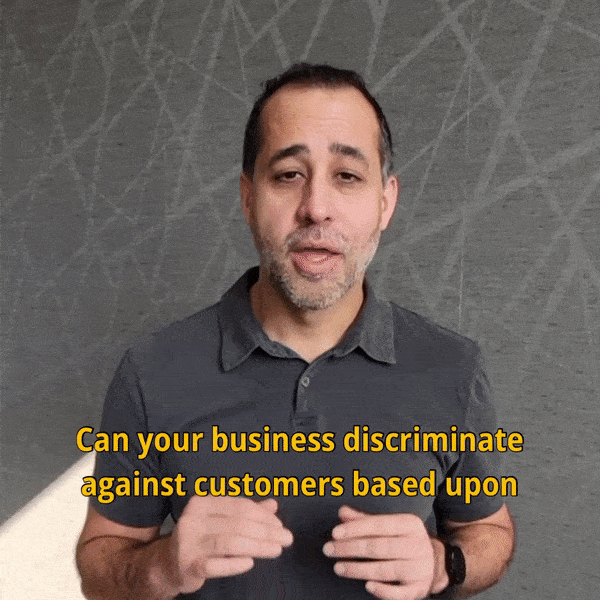
![California v. Texas: Which is Better for Business? [313]](https://www.pashalaw.com/wp-content/uploads/2021/07/Pasha_LSSB_CaliforniaVSTexas-1024x723.jpg)

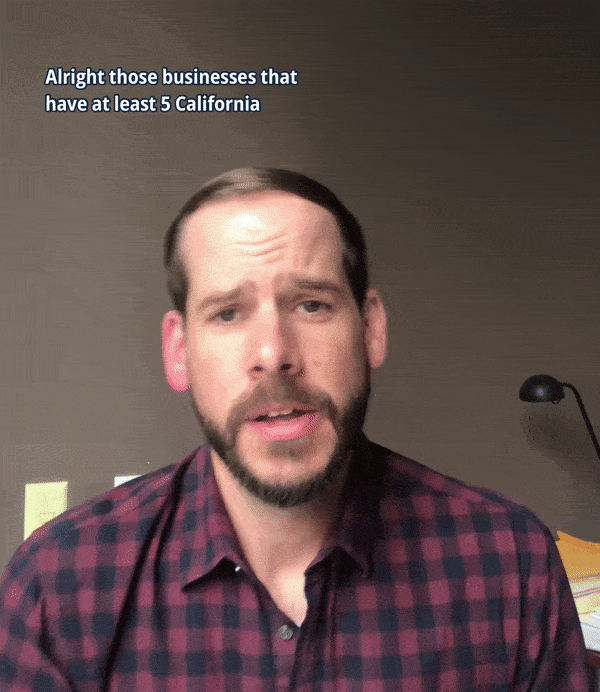
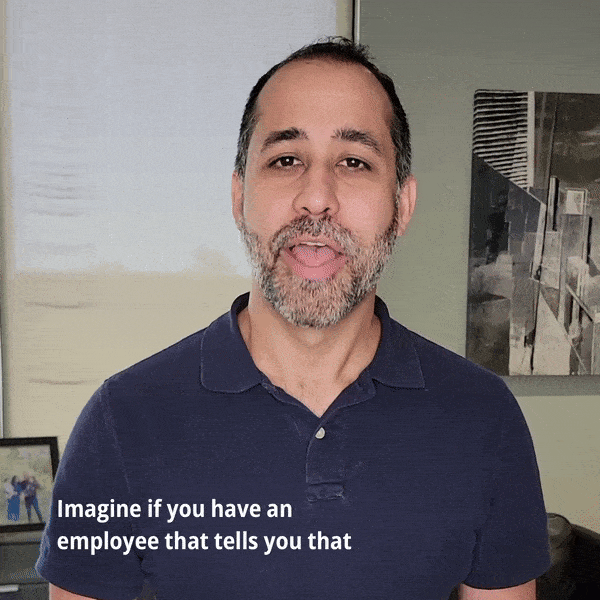
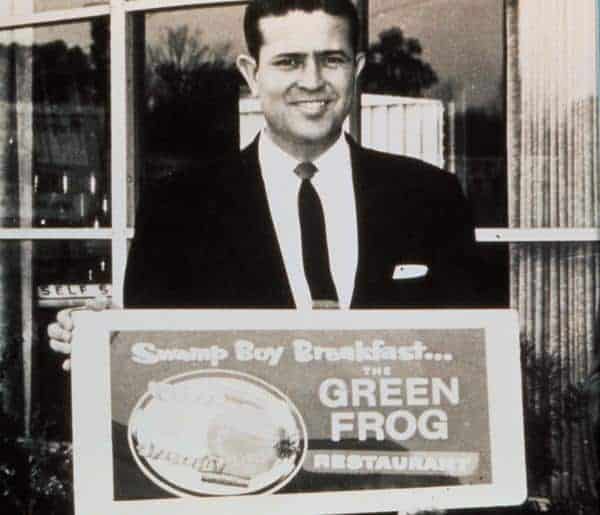

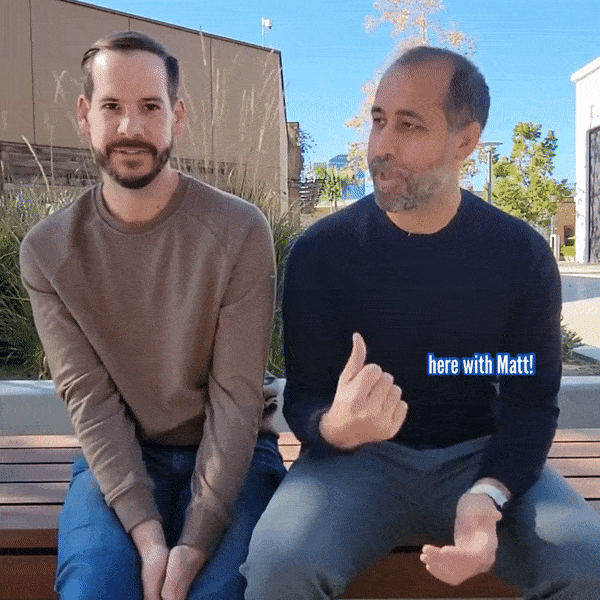




![Law in the Digital Age: Exploring the Legal Intricacies of Artificial Intelligence [e323]](https://www.pashalaw.com/wp-content/uploads/2023/11/WhatsApp-Image-2023-11-21-at-13.24.49_4a326c9e-300x212.jpg)
![Unraveling the Workforce: Navigating the Aftermath of Mass Layoffs [e322]](https://www.pashalaw.com/wp-content/uploads/2023/07/Untitled-design-23-300x212.png)
![Return to the Office vs. Remote: What Can Employers Legally Enforce? [e321]](https://www.pashalaw.com/wp-content/uploads/2023/01/Pasha_LSSB_321_banner-300x212.jpg)
![Explaining the Hans Niemann Chess Lawsuit v. Magnus Carlsen [e320]](https://www.pashalaw.com/wp-content/uploads/2022/10/LAWYER-EXPLAINS-7-300x169.png)
![California v. Texas: Which is Better for Business? [313]](https://www.pashalaw.com/wp-content/uploads/2021/07/Pasha_LSSB_CaliforniaVSTexas-300x212.jpg)
![Buyers vs. Sellers: Negotiating Mergers & Acquisitions [e319]](https://www.pashalaw.com/wp-content/uploads/2022/06/Pasha_LSSB_BuyersVsSellers_banner-300x212.jpg)
![Employers vs. Employees: When Are Employment Restrictions Fair? [e318]](https://www.pashalaw.com/wp-content/uploads/2022/05/Pasha_LSSB_EmployeesVsEmployers_banner-1-300x212.jpg)
![Vaccine Mandates Supreme Court Rulings [E317]](https://www.pashalaw.com/wp-content/uploads/2022/02/WhatsApp-Image-2022-02-11-at-4.10.32-PM-300x212.jpeg)
![Business of Healthcare [e316]](https://www.pashalaw.com/wp-content/uploads/2021/11/Pasha_LSSB_BusinessofHealthcare_banner-300x212.jpg)
![Social Media and the Law [e315]](https://www.pashalaw.com/wp-content/uploads/2021/10/WhatsApp-Image-2021-10-06-at-1.43.08-PM-300x212.jpeg)
![Defining NDA Boundaries: When does it go too far? [e314]](https://www.pashalaw.com/wp-content/uploads/2021/09/Pasha_LSSB_NDA_WordPress-2-300x212.jpg)
![More Than a Mistake: Business Blunders to Avoid [312] Top Five Business Blunders](https://www.pashalaw.com/wp-content/uploads/2021/06/Pasha_LSSB_Blunders_WP-1-300x212.jpg)
![Is There a Right Way to Fire an Employee? We Ask the Experts [311]](https://www.pashalaw.com/wp-content/uploads/2021/02/Pasha_LSSB_FireAnEmployee_Website-300x200.jpg)
![The New Frontier: Navigating Business Law During a Pandemic [310]](https://www.pashalaw.com/wp-content/uploads/2020/12/Pasha_LSSB_Epidsode308_Covid_Web-1-300x200.jpg)
![Wrap Up | Behind the Buy [8/8] [309]](https://www.pashalaw.com/wp-content/uploads/2020/11/Pasha_BehindTheBuy_Episode8-300x200.jpg)
![Is it all over? | Behind the Buy [7/8] [308]](https://www.pashalaw.com/wp-content/uploads/2020/09/iStock-1153248856-overlay-scaled-300x200.jpg)
![Fight for Your [Trademark] Rights | Behind the Buy [6/8] [307]](https://www.pashalaw.com/wp-content/uploads/2020/07/Fight-for-your-trademark-right-300x200.jpg)
![They Let It Slip | Behind the Buy [5/8] [306]](https://www.pashalaw.com/wp-content/uploads/2020/06/Behind-the-buy-they-let-it-slip-300x200.jpg)
![Mo’ Investigation Mo’ Problems | Behind the Buy [4/8] [305]](https://www.pashalaw.com/wp-content/uploads/2020/05/interrobang-1-scaled-300x200.jpg)
![Broker or Joker | Behind the Buy [3/8] [304] Behind the buy - Broker or Joker](https://www.pashalaw.com/wp-content/uploads/2020/04/Joker-or-Broker-1-300x185.jpg)
![Intentions Are Nothing Without a Signature | Behind the Buy [2/8] [303]](https://www.pashalaw.com/wp-content/uploads/2020/04/intentions-are-nothing-without-a-signature-300x185.jpg)
![From First Steps to Final Signatures | Behind the Buy [1/8] [302]](https://www.pashalaw.com/wp-content/uploads/2020/04/first-steps-to-final-signatures-300x185.jpg)
![The Dark-side of GrubHub’s (and others’) Relationship with Restaurants [e301]](https://www.pashalaw.com/wp-content/uploads/2015/04/When-Competition-Goes-Too-Far-Ice-Cream-Truck-Edition-300x201.jpg)
![Ultimate Legal Breakdown of Internet Law & the Subscription Business Model [e300]](https://www.pashalaw.com/wp-content/uploads/2019/05/Ultimate-Legal-Breakdown-of-Internet-Law-the-Subscription-Business-Model-300x196.jpg)
![Why the Business Buying Process is Like a Wedding?: A Legal Guide [e299]](https://www.pashalaw.com/wp-content/uploads/2019/03/futura-300x169.jpg)
![Will Crowdfunding and General Solicitation Change How Companies Raise Capital? [e298]](https://www.pashalaw.com/wp-content/uploads/2018/11/Will-Crowdfunding-and-General-Solicitation-Change-How-Companies-Raise-Capital-300x159.jpg)
![Pirates, Pilots, and Passwords: Flight Sim Labs Navigates Legal Issues (w/ Marc Hoag as Guest) [e297]](https://www.pashalaw.com/wp-content/uploads/2018/07/flight-sim-labs-300x159.jpg)
![Facebook, Zuckerberg, and the Data Privacy Dilemma [e296] User data, data breach photo by Pete Souza)](https://www.pashalaw.com/wp-content/uploads/2018/04/data-300x159.jpg)
![What To Do When Your Business Is Raided By ICE [e295] I.C.E Raids business](https://www.pashalaw.com/wp-content/uploads/2018/02/ice-cover-300x159.jpg)
![General Contractors & Subcontractors in California – What you need to know [e294]](https://www.pashalaw.com/wp-content/uploads/2018/01/iStock-666960952-300x200.jpg)
![Mattress Giants v. Sleepoplis: The War On Getting You To Bed [e293]](https://www.pashalaw.com/wp-content/uploads/2017/12/sleepopolis-300x159.jpg)
![The Harassment Watershed [e292]](https://www.pashalaw.com/wp-content/uploads/2017/12/me-2-300x219.jpg)
![Investing and Immigrating to the United States: The EB-5 Green Card [e291]](https://www.pashalaw.com/wp-content/uploads/2012/12/eb-5-investment-visa-program-300x159.jpg)
![Responding to a Government Requests (Inquiries, Warrants, etc.) [e290] How to respond to government requests, inquiries, warrants and investigation](https://www.pashalaw.com/wp-content/uploads/2017/10/iStock_57303576_LARGE-300x200.jpg)
![Ultimate Legal Breakdown: Employee Dress Codes [e289]](https://www.pashalaw.com/wp-content/uploads/2017/08/Ultimate-Legal-Breakdown-Template-1-300x159.jpg)
![Ultimate Legal Breakdown: Negative Online Reviews [e288]](https://www.pashalaw.com/wp-content/uploads/2017/06/Ultimate-Legal-Breakdown-Online-Reviews-1-300x159.jpg)
![Ultimate Legal Breakdown: Social Media Marketing [e287]](https://www.pashalaw.com/wp-content/uploads/2017/06/ultimate-legal-breakdown-social-media-marketing-blur-300x159.jpg)
![Ultimate Legal Breakdown: Subscription Box Businesses [e286]](https://www.pashalaw.com/wp-content/uploads/2017/03/ultimate-legal-breakdown-subscription-box-services-pasha-law-2-300x159.jpg)
![Can Companies Protect Against Foreseeable Misuse of Apps [e285]](https://www.pashalaw.com/wp-content/uploads/2017/01/iStock-505291242-300x176.jpg)
![When Using Celebrity Deaths for Brand Promotion Crosses the Line [e284]](https://www.pashalaw.com/wp-content/uploads/2017/01/celbrity-300x159.png)
![Are Employers Liable When Employees Are Accused of Racism? [e283] Racist Employee](https://www.pashalaw.com/wp-content/uploads/2016/12/Are-employers-liable-when-an-employees-are-accused-of-racism-300x159.jpg)
![How Businesses Should Handle Unpaid Bills from Clients [e282] What to do when a client won't pay.](https://www.pashalaw.com/wp-content/uploads/2016/12/How-Businesses-Should-Handle-Unpaid-Bills-to-Clients-300x159.png)
![Can Employers Implement English Only Policies Without Discriminating? [e281]](https://www.pashalaw.com/wp-content/uploads/2016/11/Can-Employers-Impliment-English-Only-Policies-Without-Discriminating-300x159.jpg)
![Why You May No Longer See Actors’ Ages on Their IMDB Page [e280]](https://www.pashalaw.com/wp-content/uploads/2016/10/IMDB-AGE2-300x159.jpg)
![Airbnb’s Discrimination Problem and How Businesses Can Relate [e279]](https://www.pashalaw.com/wp-content/uploads/2016/09/airbnb-300x159.jpg)
![What To Do When Your Amazon Account Gets Suspended [e278]](https://www.pashalaw.com/wp-content/uploads/2016/09/What-To-Do-When-Your-Amazon-Account-Gets-Suspended-1-300x200.jpg)
![How Independent Artists Reacted to Fashion Mogul Zara’s Alleged Infringement [e277]](https://www.pashalaw.com/wp-content/uploads/2016/08/How-Independent-Artists-Reacted-to-Fashion-Mogul-Zaras-Alleged-Infringement--300x159.jpg)
![Can Brave’s Ad Replacing Software Defeat Newspapers and Copyright Law? [e276]](https://www.pashalaw.com/wp-content/uploads/2016/08/Can-Braves-Ad-Replacing-Software-Defeat-Newspapers-and-Copyright-Law-300x159.jpg)
![Why The Roger Ailes Sexual Harassment Lawsuit Is Far From Normal [e275]](https://www.pashalaw.com/wp-content/uploads/2016/07/WHY-THE-ROGER-AILES-SEXUAL-HARASSMENT-LAWSUIT-IS-FAR-FROM-NORMAL-300x159.jpeg)
![How Starbucks Turned Coveted Employer to Employee Complaints [e274]](https://www.pashalaw.com/wp-content/uploads/2016/07/iStock_54169990_LARGE-300x210.jpg)
